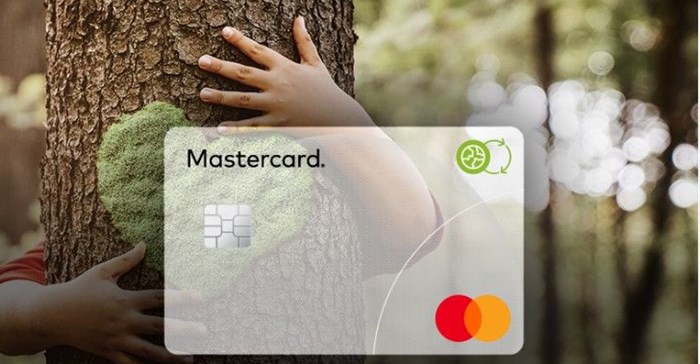
Top stories






More news

















Logistics & Transport
Uganda plans new rail link to Tanzania for mineral export boost








This move accelerates its efforts to reduce the environmental impact of its cards and further reinforces the company’s sustainability commitments.
In a first move for a payment network, this mandate will include recycled or bio-sourced plastics such as rPVC, rPET, or PLA and will extend to Mastercard’s global issuing partners.
“Mastercard is committed to advancing climate action and reducing waste by driving its business toward net zero emissions and leveraging its network and scale to accelerate the transition to a low-carbon, regenerative economy,” said Ellen Jackowski, chief sustainability officer for Mastercard.
In an endeavour to transition away from virgin PVC, Mastercard launched its Sustainable Card Program in 2018. Since then, more than 330 issuers across 80 countries have signed up, working in partnership with major card manufacturers to transition more than 168 million cards across its network to recycled and bio-based materials.
Today’s announcement further drives these efforts, while also complimenting the company’s work to deliver innovative, digital-first card programmes that fully eliminate the need for a physical card offering.
The rule-change will see all newly made cards certified by Mastercard assessed for their composition and sustainability claims; this certification will then be validated by an independent third-party auditor.
Once a card has been validated it can be imprinted with a Card Eco Certification mark.
Mastercard established its sustainability efforts more than a decade ago with a focus on financial inclusion, data responsibility and the environment.
Through its network it collaborates with partners to bring new environmental innovations and initiatives to market, such as its Priceless Planet Coalition, Carbon Calculator as well as the Sustainable Card.
Taylan Turan, group head of retail banking and strategy, wealth and personal banking at HSBC, said: “Today’s announcement from Mastercard is a huge step for financial services. New sustainable materials, such as rPVC, offer our sector a clear way to accelerate its efforts to build a more sustainable future.
“As part of our net zero strategy at HSBC, we’ve already introduced recycled plastic payment cards across 28 of our global markets and embedded the requirement to use sustainable materials for all debit, credit and commercial cards in our product governance; removing 85 tonnes of plastic that would have ended up in landfill."
Across the world nearly 380M tons of plastic is produced each year. Most of which is first-use. From January 2028, all newly-produced Mastercard plastic payment cards will be made from more sustainable materials. Learn more: https://t.co/jfFmmBCUAC#earthmonth #sustainability… pic.twitter.com/GKPceNW37x
— Mastercard News (@MastercardNews) April 5, 2023
"This level of impact couldn’t be achieved without strong partnership; I am so proud for us to be a part of a movement which is gathering momentum across the world.”
Michael Battagliese, head of payment solutions, and the senior vice president at Bank of the West said: “We believe that conducting business sustainably is simply the right thing to do.
That's why we partnered with Mastercard on our 1% For The Planet checking account debit cards, which are designed to reduce the impact of first-use PVC on the environment.
“We’re proud to have been one of the first banks in the US to be a part of the sustainable cards program and we’re pleased Mastercard is on a path to make all payment cards with more sustainable materials.”
Mastercard’s network includes 20,000 customers and banking partners – and its initiative to reduce the environmental impact of its cards will collectively reach more than 3 billion cardholders.